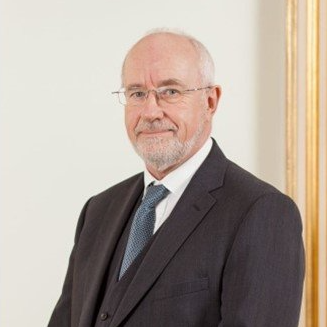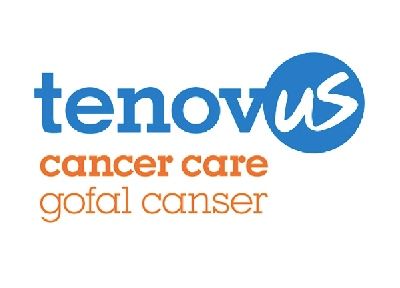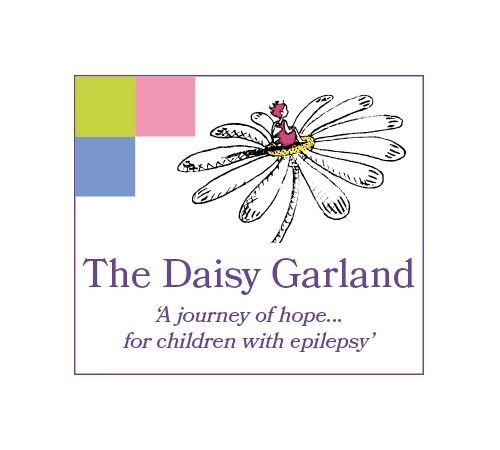0117 959 6496
An Evening on the Helideck
Overlooking the beautiful city from the top of the Bristol Royal Infirmary I spotted the distinctive green and blue of Helimed 65, the Great Western Air Ambulance Charity helicopter as it came in to land above us on the helipad. Fortunately, this was no emergency and there was no patient on board. Pilot Alan Petch along with a specialist paramedic and a critical care doctor brought the helicopter to give us a chance to see inside and hear about the incredible lifesaving missions it embarks on every day.
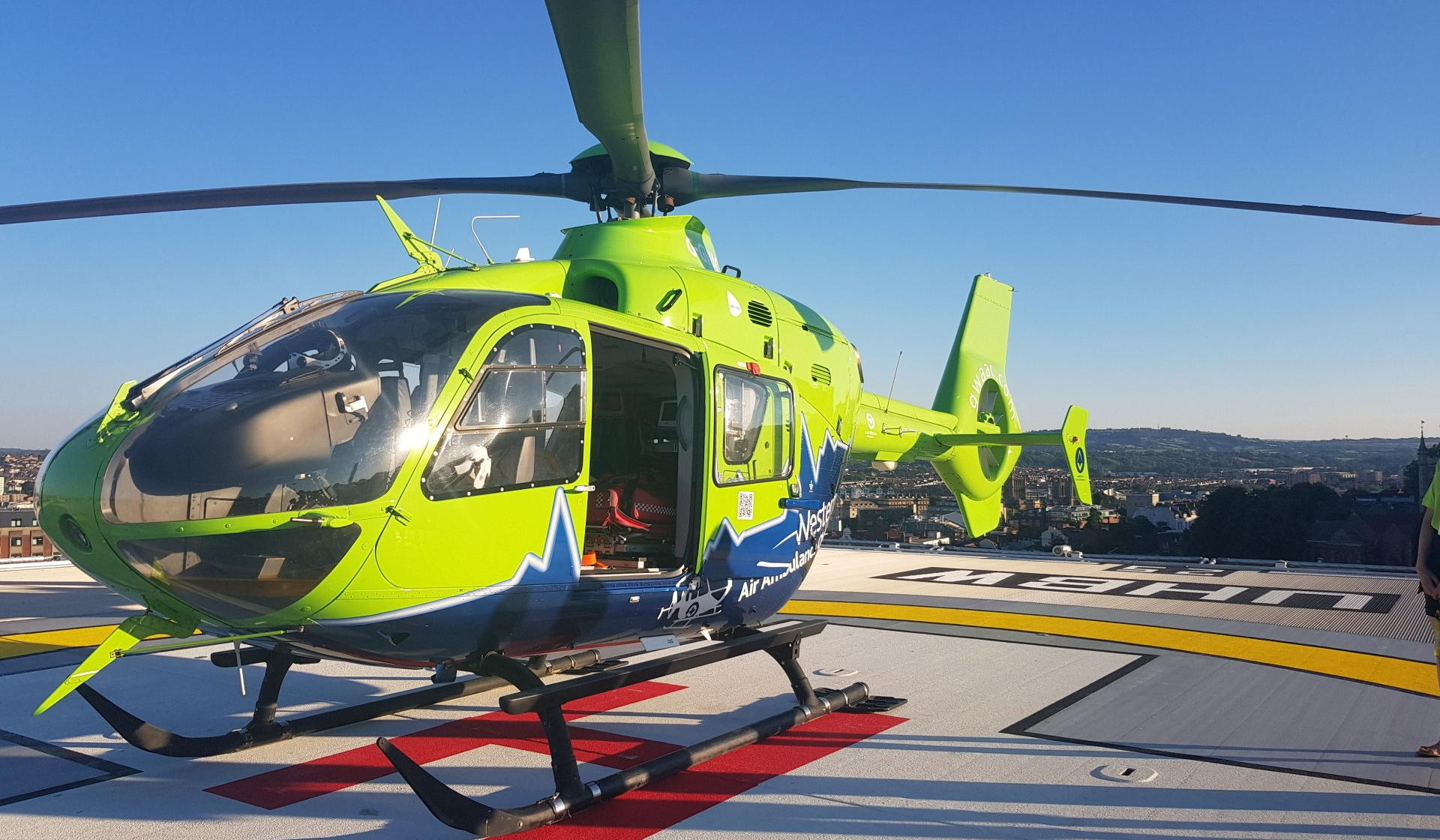
The helicopter is smaller than I had imagined, and it is difficult to envisage it fitting 2 or 3 crew members, the pilot and all of the vital lifesaving equipment they need, never mind a patient as well! But the paramedics explained that a smaller aircraft allows them to land in areas that larger helicopters couldn’t enabling them to reach patients in more locations. Although compact I was amazed by the complexity of kit that they routinely travel with such as ventilators and kit for emergency procedures like blood transfusions and anaesthetics.
The team at GWAAC receive on average 5 calls a day to seriously ill or injured patients across the area. They are specially trained to carry out life-saving interventions on-scene to stabilise the patient for long enough to get them to a hospital for further treatment. Despite the name two thirds of missions are undertaken by road. The fleet of critical care cars enable the crew to be more resilient, allowing them to respond to patients in any weather conditions and in hours of darkness when the helicopter does not fly. In 2021 GWAAC attended 1,964 call outs, their second busiest year on record, with 14% of these incidents involving patients under 18 and the most common incidents being cardiac arrests accounting for over 500 call outs. So far this year the team have carried out 1169 missions.
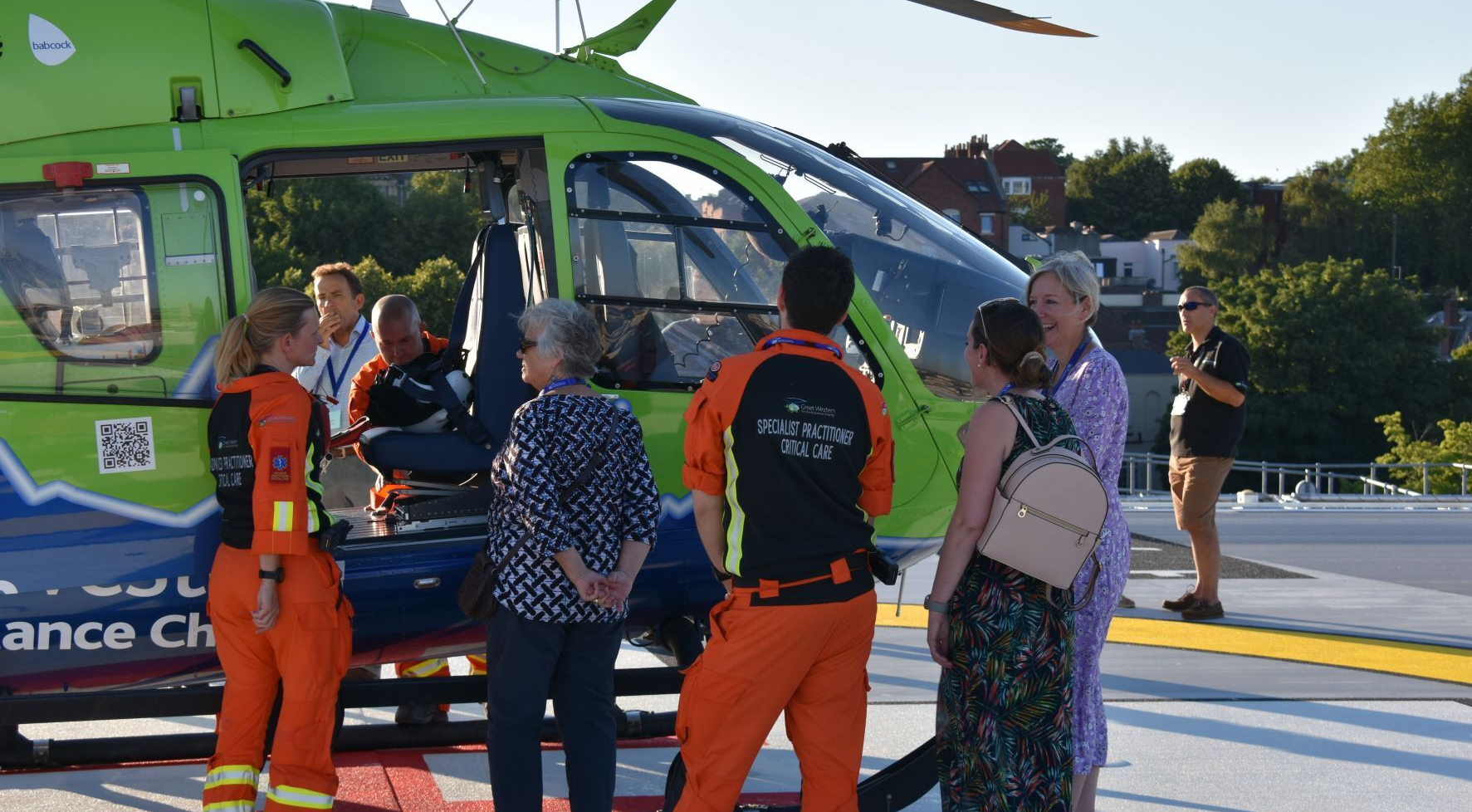
The team come from diverse backgrounds with a wealth of knowledge, medical and otherwise that they employ on every shout to ensure that patients receive the highest level of care from the moment they arrive on scene to the point of handover in the resus room of the emergency department. Critical Care Doctors Richard Jeavons and Phil Cowburn MBE explained the process the crew go through upon landing at the hospital with a critically unwell patient. The crew’s work does not end when the helicopter lands, patients remain in the care of the GWAAC crew until they reach the emergency department where a thorough handover takes place.
In order to keep up to speed with the constantly evolving world of emergency medicine, staff training is of the utmost importance. When paramedics join GWAAC they already have several years’ experience working as land ambulance crew. They then have to undertake extensive training and demonstrate their skills and knowledge in the field before they qualify as Specialist Paramedics in Critical Care. We are proud to say this is where The James Tudor Foundation’s relationship with GWAAC lies. Funds from the Foundation are currently supporting specialist paramedic Dan Davis to complete his MSc in Emergency and Resuscitation Medicine. In 2020-21 the Foundation part funded Dan’s first year at the end of which he successfully achieved his Post Graduate Diploma and qualified as a Specialist Paramedic in Critical Care and we are currently supporting him through the second year of the course which involves modules such as Emergency Management of Severe Trauma, Toxicology and Paediatric Emergency Medicine. Following this year of study, Dan will be completing his dissertation, the outcomes of which will be shared with the whole crew to benefit their practice.
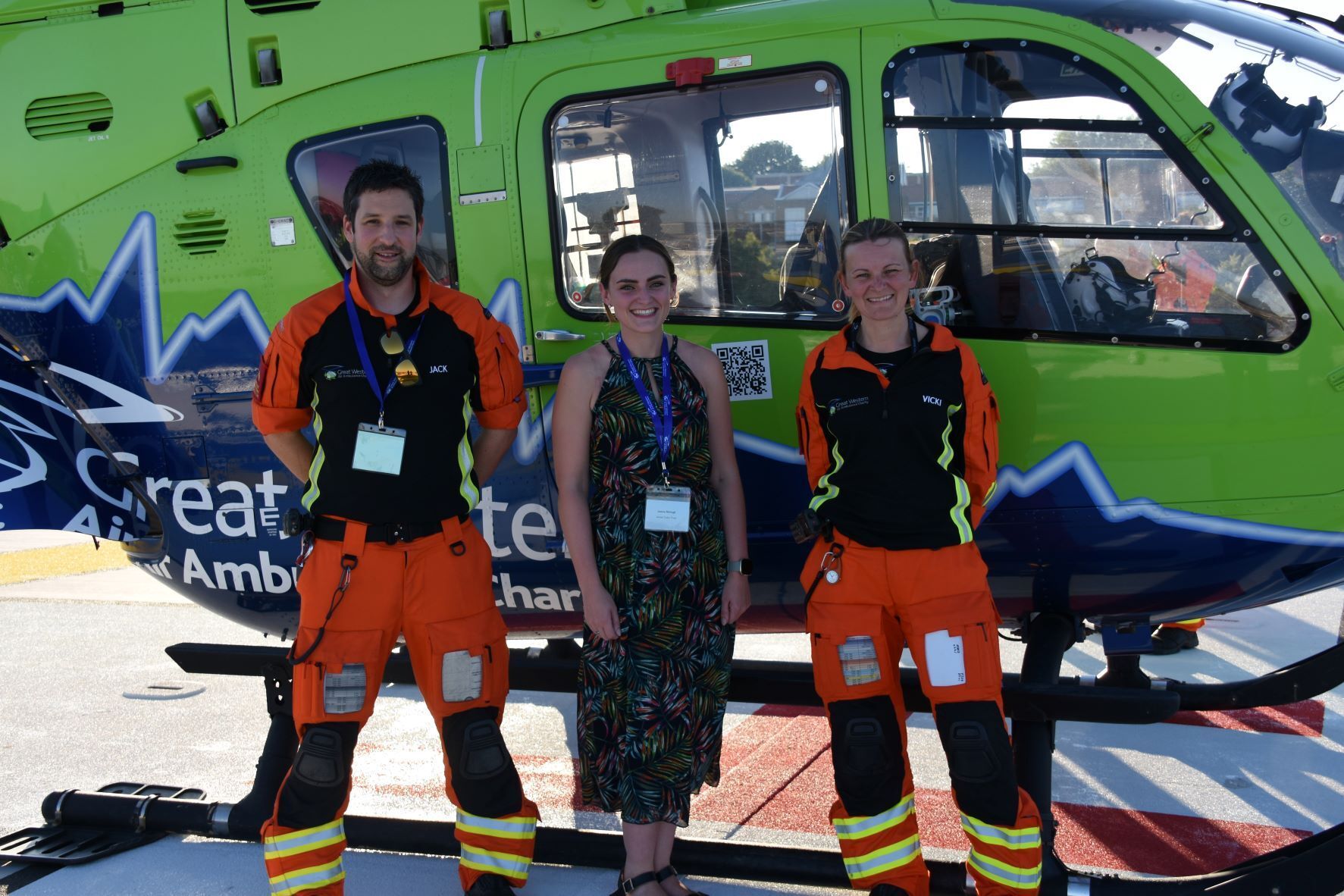
We are extremely lucky to benefit from this world class service here in Bristol and the surrounding areas. All Air Ambulance services in England are charities and although a proportion of GWAACs Specialist Paramedic costs are absorbed by South Western Ambulance Service, they rely on Trusts and Foundations like ours and generous public donations to raise the £4 million needed every year to keep their services running.

